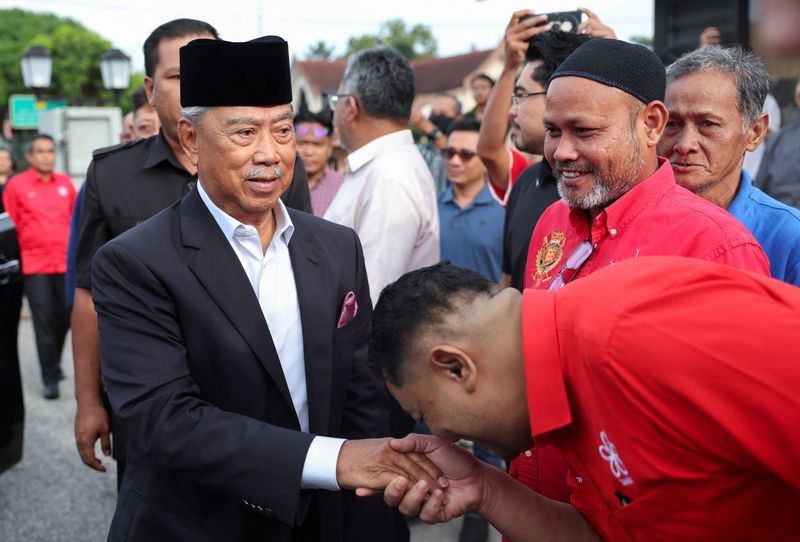Former Malaysian Prime Minister Muhyiddin Yassin was charged with sedition on Tuesday for allegedly making remarks that questioned the integrity of the country’s previous king. The case has reignited debates about freedom of speech and the role of Malaysia’s unique rotating monarchy in the nation’s political landscape.

Muhyiddin, who served as Prime Minister from March 2020 to August 2021, pleaded not guilty in a court in the northeastern state of Kelantan. According to the charge sheet, the alleged seditious remarks were made during a by-election campaign in Kelantan on August 14.
The controversy stems from Muhyiddin’s public questioning of why then-King Sultan Abdullah Sultan Ahmad Shah did not invite him to become prime minister following a hung Parliament in November 2022. Muhyiddin claimed he had the backing of a majority of lawmakers at the time.
Malaysia’s system of constitutional monarchy, established upon independence from Britain in 1957, features a unique rotating kingship where nine ethnic Malay state rulers take turns as the country’s monarch for five-year terms. While largely ceremonial, the monarchy holds significant symbolic importance, particularly among the nation’s Muslim majority.
The remarks in question were directed at Sultan Abdullah from central Pahang state, whose reign ended on January 30 this year. While the former king has not commented on the case, his son issued a strong rebuke to Muhyiddin, characterizing the remarks as dangerous and potentially divisive.
Muhyiddin’s Islamic nationalist bloc had received stronger-than-expected support from ethnic Malays, who comprise about two-thirds of Malaysia’s 34 million population. However, Sultan Abdullah ultimately appointed Anwar Ibrahim as prime minister after Anwar successfully formed a unity government with support from rival parties.

The use of the colonial-era Sedition Act against Muhyiddin has drawn criticism from human rights advocates. Zaid Malek from Lawyers for Liberty, a human rights and law reform group, condemned the application of the law in this case, arguing that questioning or criticizing the constitutional powers of the king should not be considered seditious.
“The king is a constitutional monarch, and not a feudal ruler. His exercise of his power can thus be debated, questioned or criticized. This is the very bedrock of our system of constitutional monarchy,” Malek stated. He also noted that current Prime Minister Anwar Ibrahim had previously pledged to repeal the Sedition Act, which has long been criticized for suppressing dissenting voices.
If found guilty, Muhyiddin, 77, could face up to three years in prison, a fine, or both. This case adds to his legal troubles, as he is already battling corruption and money-laundering charges, which he claims are politically motivated.
Muhyiddin becomes the second former Malaysian leader to face criminal charges in recent years, following ex-Prime Minister Najib Razak, who is currently serving a 12-year prison term for corruption with several more trials pending.



